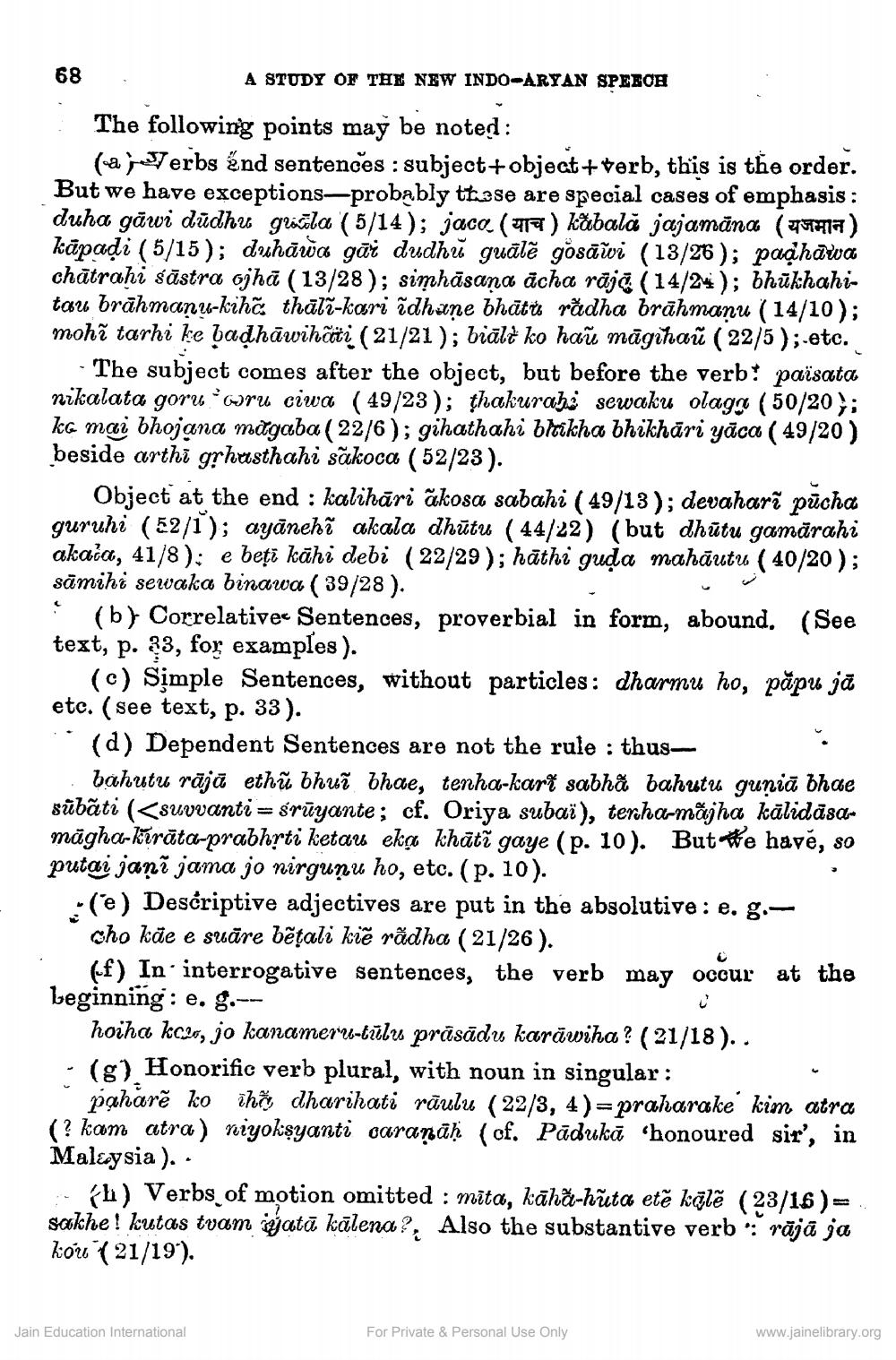________________
68 .
A STUDY OF THE NEW INDO-ARYAN SPEECH The following points may be noted:
(aJerbs énd sentences : subject+object+terb, this is the order. But we have exceptions—probably these are special cases of emphasis : duha gāwi dūdhu grla (5/14); jaco (17) kábală jajamāna (75817) kāpadi (5/15); duhāwa gāi dudhu guālē gösāži (13/26); paghawa chātrahi sāstra ojhā (13/28); simhāsana acha rāja (14/24); bhūkhahitau brāhmanukihã thālī-kori ūdhane bhūtto rădha brāhmanu (14/10); mohē tarhi ke badhāwihčči (21/21); biāld ko haŭ māgiħaŭ (22/5);.etc.
The subject comes after the object, but before the verb: païsata nikalata goru oru ciwa ( 49/23); thakurahi sewaku olagg (50/20;; ko mai bhojana magaba (22/6); gihathahi bikha bhikhāri yāca ( 49/20) beside arthi grhasthahi sākoca ( 52/23).
Object at the end : kalihāri ākosa sabahi ( 49/13); devaharī pūcha guruhi ( 52/1); ayānehī akala dhūtu ( 44/22) (but dhūtu gamārahi akača, 41/8): e beți kāhi debi (22/29 ); hāthi guda mahāutu ( 40/20 ); sāmihi sewaka binawa ( 39/28 ). : (b) Correlativec Sentences, proverbial in form, abound. (See text, p. 33, for examples).
(c) Simple Sentences, without particles: dharmu ho, păpu jā etc. (see text, p. 33).
(d) Dependent Sentences are not the rule : thus
bahutu rājā ethì bhui bhae, tenha-kart sabhã bahutu gunia bhae sübãti (<suvvanti = srūyante; cf. Oriya subaï), terha-măjha kälidāsamāgha-kirāta-prabhyti ketau ekg khātī gaye (p. 10). But We have, so putai jaņē jama jo nirgunu ho, etc. (p. 10). .() Descriptive adjectives are put in the absolutive : e. g.cho kãe e suāre bēļali kič rădha (21/26).
(f) In interrogative sentences, the verb may occur at the beginning : e. g.--
hoiha kc26, jo kanameru-tilu prāsādu karāwiha? (21/18).. - (g) Honorific verb plural, with noun in singular:
pahärē ko ihč dharihati rāulu (22/3, 4)=praharake' kim atra (? kam atra) niyokşyanti caranāḥ (of. Pādukā 'honoured sir', in Malaysia ). .
b) Verbs of motion omitted : mīta, kāhă-hīta etê kalê (23/16 )= .. sokhe! kutas tvam ýatā kālena?, Also the substantive verb rājā ja kou (21/19').
Jain Education International
For Private & Personal Use Only
www.jainelibrary.org




